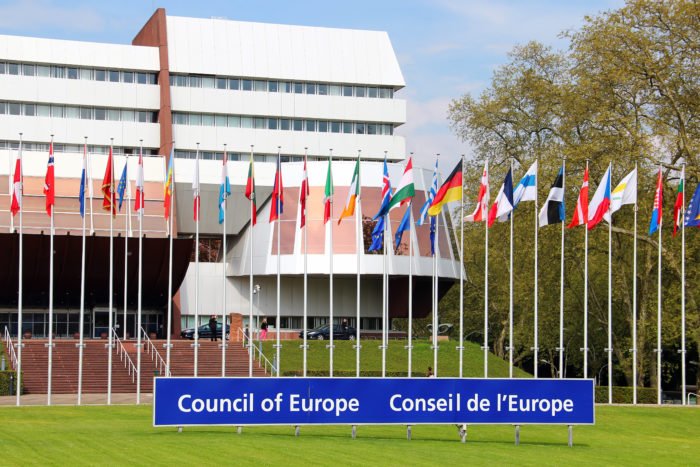Pointing at “the substance of the proposed constitutional amendments represents a dangerous step backwards in the constitutional democratic tradition of Turkey,” the Council of Europe’s (CoE) Venice Commission has urged Turkish government to respect the principles of the separation of powers and of the rule of law that requires sufficient checks and balances to be inbuilt in the designed political system.
Releasing its opinion on the amendments to the constitution adopted by Turkish Parliament on Jan. 21, 2017, Venice Commission has stated on Monday that “When a presidential system is chosen (…) particular caution is called for, as presidentializm carries an intrinsic danger of degenerating into an authoritarian rule.”
According to the opinion of the Venice Commission, “In a presidential system, the executive and the legislative powers both derive their powers and legitimacy from the people, through elections held at fixed intervals. The two powers are rigidly separate, so that conflicts between the two inevitably arise. Governing requires mediation of these conflicts. To be meaningful, separation of powers requires therefore that the different powers should be constituted in a way which also allows for divergent approaches and political emphases.”
Criticizing “Turkish-style” presidential system, the Commission stated that it would constitute a decisive break in the constitutional history of the country. The Commission has also highlighted the matter that the process of parliamentary debate and adoption of the constitutional amendments took place in a context where several deputies from the second largest opposition party were in jail.
Adding that the whole process of parliamentary adoption and submission for approval by referendum of the constitutional amendments is taking place during the state of emergency, when very substantive limitations on freedom of expression and freedom of assembly are in force, the Commission has voiced its concerns as by saying that “In particular the extremely unfavorable environment for journalism and the increasingly impoverished and one-sided public debate that prevail in Turkey at this point question the very possibility of holding a meaningful, inclusive democratic referendum campaign about the desirability of the amendments.”
The Commission continued its criticism as follows:
“They are not based on the logic of separation of powers, which is characteristic for democratic presidential systems. Presidential and parliamentary elections would be systematically held together to avoid possible conflicts between the executive and the legislative powers. Their formal separation therefore risks being meaningless in practice and the role of the weaker power, parliament, risks becoming marginal. The political accountability of the President would be limited to elections, which would take place only every five years.
“The new President would exercise executive power alone, with an unsupervised power to appoint and dismiss ministers, who do not form a collegiate government, and to appoint and dismiss all the high officials on the basis of criteria determined by him or her alone. – The President would be empowered to choose one or more Vice-presidents; one of them, without any democratic legitimacy and without validation by parliament, would be called to exercise presidential functions in case of vacancy or temporary absence of the presidential position.
“The President, Vice-presidents and ministers would be accountable only by the procedure of impeachment, which is a very weak tool of parliamentary supervision;
– The President would be allowed to be a member and even the leader of his or her political party, which would give him or her influence over the legislature.
– The principle of compulsory synchronization of presidential and parliamentary elections would be introduced.
– The President would be given the power to dissolve parliament on any grounds whatsoever, which is fundamentally alien to democratic presidential systems, while being obliged to call in this case also early presidential elections. This way of resolving political problems is, at best, rudimentary.
– The President would have the opportunity to obtain a third mandate, if parliament decides to renew elections during his or her second mandate. This is an unjustified exception to the limitation to two presidential mandates provided in the Turkish constitution and also corresponding to good European practice.
– The President would also have an extensive power to issue presidential decrees without the need for an empowering law which the Constitutional Court could review; although in principle laws would prevail over presidential decrees, the amendments fail to introduce effective mechanisms to ensure such prevalence in practice.
– The President would be given the exclusive power to declare a state of emergency and could issue presidential decrees without any limitation during the state of emergency.
“In a presidential regime, a strong, independent judiciary is essential to settle the conflicts between the executive and the legislative powers. However, the proposed amendments weaken, instead of strengthening the Turkish judiciary.
“The enhanced executive control over the judiciary and prosecutors which the constitutional amendments would bring about would be even more problematic, in the context in which there have already been longstanding concerns regarding the lack of independence of the Turkish judiciary. The amendments would weaken an already inadequate system of judicial oversight of the executive.
“The proposed constitutional amendments would introduce in Turkey a presidential regime which lacks the necessary checks and balances required to safeguard against becoming an authoritarian one.
“In conclusion, the Venice Commission is of the view that the substance of the proposed constitutional amendments represents a dangerous step backwards in the constitutional democratic tradition of Turkey. The Venice Commission wishes to stress the dangers of degeneration of the proposed system towards an authoritarian and personal regime. In addition, the timing is most unfortunate and is itself cause of concern: the current state of emergency does not provide for the due democratic setting for a constitutional referendum.
March 13, 2017















